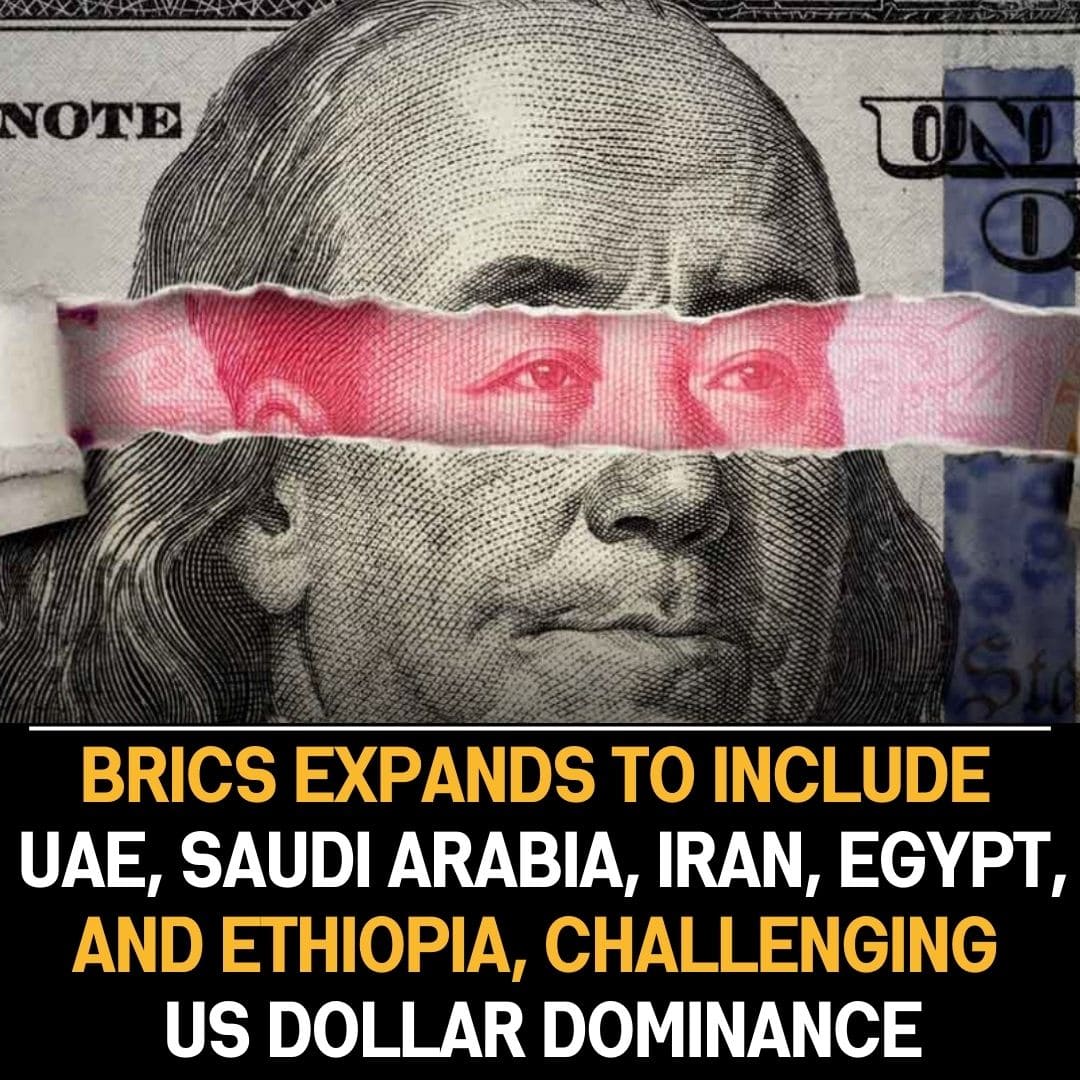In a historic move, the BRICS group, comprising Brazil, Russia, India, China, and South Africa, has expanded to include five new members: the United Arab Emirates (UAE), Saudi Arabia, Iran, Egypt, and Ethiopia. This significant development not only broadens the geopolitical influence of the BRICS alliance but also poses a formidable challenge to the longstanding dominance of the US dollar in global economic transactions.
The decision to incorporate the UAE, Saudi Arabia, Iran, Egypt, and Ethiopia into the BRICS coalition reflects a strategic realignment in international relations. These nations, spanning the Middle East and Africa, bring diverse economic strengths and geopolitical significance to the alliance, further solidifying BRICS as a powerful bloc on the global stage.
One of the key implications of this expansion is the collective challenge it poses to the dominance of the US dollar. Traditionally, international trade and financial transactions have been heavily reliant on the US dollar as the world’s primary reserve currency. The inclusion of these economically significant nations in BRICS provides an alternative framework for economic cooperation, potentially reducing dependence on the US dollar and reshaping the global financial landscape.
The expanded BRICS alliance aims to foster closer economic ties among its members, creating a more balanced and multipolar world order. By integrating the UAE, Saudi Arabia, Iran, Egypt, and Ethiopia, the alliance embraces diverse regional perspectives and resources, enhancing its collective capacity for innovation, development, and resilience in the face of global economic challenges.
The inclusion of these Middle Eastern and African nations also opens up opportunities for infrastructure development, trade partnerships, and investment collaborations. The combined economic strength of the expanded BRICS provides a foundation for joint initiatives that can drive sustainable development and economic growth across regions, reducing disparities and fostering inclusive prosperity.
While challenging the US dollar’s dominance, the expanded BRICS alliance is not positioned as a direct adversary but rather as a catalyst for a more multipolar and inclusive global economic system. The inclusion of these nations underscores a shift in the geopolitical landscape, emphasizing cooperation and shared economic interests as driving forces for international relations.
In conclusion, the expansion of BRICS to include the UAE, Saudi Arabia, Iran, Egypt, and Ethiopia marks a significant geopolitical and economic milestone. This move challenges the traditional structures of global economic influence, particularly the dominance of the US dollar, and sets the stage for a more inclusive and multipolar world order. The expanded alliance holds the potential to reshape international economic dynamics, fostering collaboration and shared prosperity among its diverse member nations.









